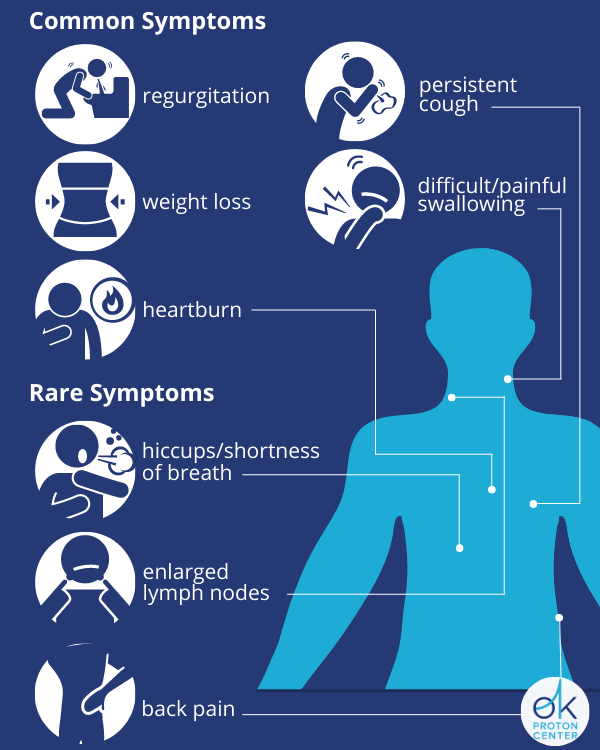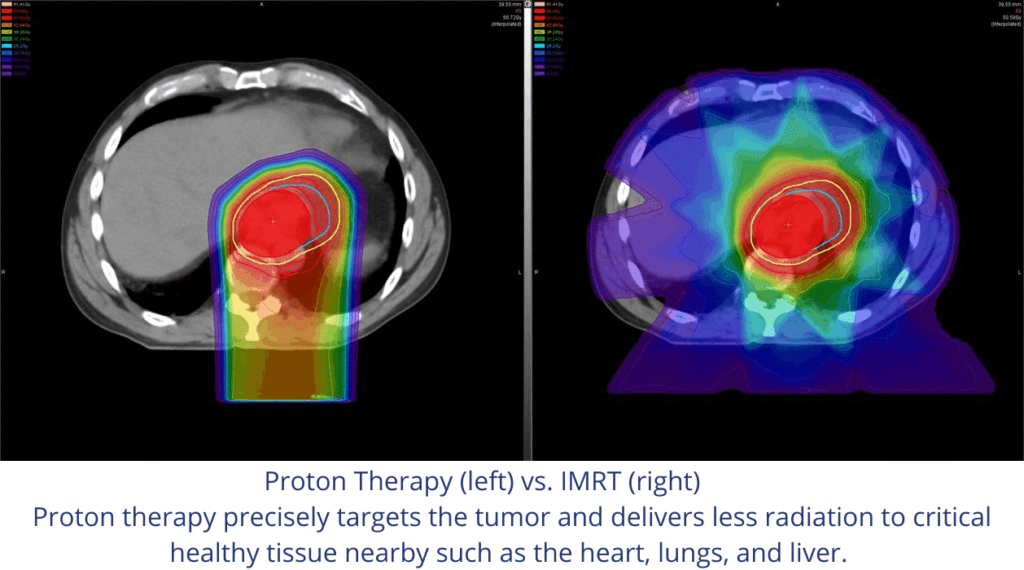Esophageal Awareness Month serves as a platform to educate the public about the risk factors, symptoms, and treatment options for this disease. By raising awareness, we can encourage early detection, improve treatment outcomes, and support individuals and families affected by esophageal cancer.
The esophagus is a long, muscular tube connecting the throat to the stomach. Esophageal cancer forms in the lining of the esophagus. There are two types of esophageal cancer: squamous cell carcinoma and adenocarcinoma.

Smoking, heavy consumption of alcoholic beverages, and a condition known as Barrett’s esophagus can increase the risk of developing esophageal cancer. Additionally, risk factors include older age, being male, and being African American.
Signs and symptoms of esophageal cancer include difficulty swallowing, weight loss, pain behind the breastbone, hoarseness, cough, indigestion, and heartburn.
Proton therapy is an optimal treatment option for esophageal cancer patients. This precise form of radiation therapy delivers targeted radiation to cancerous cells while minimizing damage to surrounding healthy tissue. Protons, unlike traditional photon radiation, deposit the majority of their energy directly within the tumor, reducing the risk of side effects and long-term complications.
A study of 444 patients from MD Anderson Cancer Center found that Proton Therapy patients had the lowest complication rates when compared to 3D or IMRT treatment.
Proton therapy offers several advantages for esophageal cancer patients:
Precision: Proton therapy allows oncologists to precisely target tumors located near critical structures such as the heart, lungs, and spinal cord, minimizing the risk of collateral damage.
Reduced Side Effects: By sparing healthy tissue from unnecessary radiation exposure, proton therapy helps reduce the risk of side effects such as difficulty swallowing, nausea, and fatigue commonly associated with traditional radiation therapy.
Improved Quality of Life: The targeted nature of proton therapy preserves patients’ quality of life during and after treatment, allowing them to maintain normal swallowing function and enjoy a better overall quality of life.
Enhanced Treatment Efficacy: Studies have shown promising results regarding the efficacy of proton therapy in treating esophageal cancer, with comparable or even superior outcomes compared to conventional treatments.

Your doctor will work with you on a treatment regimen that makes the most sense for your diagnosis. Treatments, also known as protocols, for esophageal cancer, can range anywhere from 22 to 33 protocols with each session averaging about 20-30 minutes.
Esophageal Awareness Month serves as a reminder of the importance of early detection, comprehensive support, and access to cutting-edge treatments for esophageal cancer patients. By uniting in advocacy, education, and ongoing research, we can illuminate the path towards better care and outcomes for all affected by esophageal cancer.
Oklahoma Proton Center is one of the leading proton centers in the country, having treated over 5,000 patients since opening in 2009. Patients or others wanting more information about proton therapy can reach out to Oklahoma Proton Center at (405) 773-7600.
